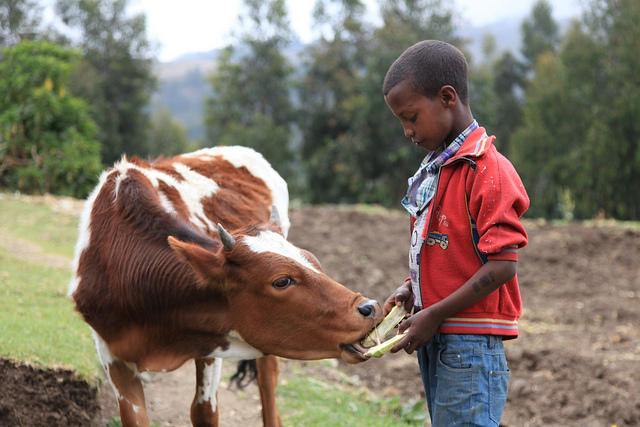Written by Ekta Patel
 International Livestock Research Institute (ILRI) and the International Centre for Antimicrobial Resistance Solutions (ICARS) have signed a memorandum of collaboration to strengthen activities to address antimicrobial resistance in low and middle-income countries (LMICs).
International Livestock Research Institute (ILRI) and the International Centre for Antimicrobial Resistance Solutions (ICARS) have signed a memorandum of collaboration to strengthen activities to address antimicrobial resistance in low and middle-income countries (LMICs).
Antimicrobials, especially antibiotics, are at the cornerstone of modern health systems and are used to treat and prevent bacterial infections in humans, animals and plants. The effectiveness of these medications is threatened through the rise and spread of drug-resistant microorganisms in humans. These resistant bacteria, viruses, fungi, protozoa and parasites are no longer affected by drugs that once killed them or stopped their multiplication. This is known as antimicrobial resistance (AMR).
ICARS, a Danish-initiated international organisation, has a mission to support LMICs in their efforts to reduce drug-resistant infections by closing the gap between policy and practice through a holistic, cross-sectorial approach. ICARS provides expertise and support to governments in LMICs and co-creates and co-develops context-specific solutions for AMR.
The CGIAR AMR Hub, led and hosted by ILRI and established in 2019, applies a One Health approach to support governments in LMICs to control agriculture-associated AMR risks, by promoting and facilitating transdisciplinary research and partnerships. Including ILRI, the CGIAR AMR Hub currently works with other CGIAR centres including World Fish, the International Water Management Institute (IWMI), and the International Food Policy Research Institute (IFPRI). Other key partners include the Swedish University of Agricultural Sciences and the London School of Hygiene and Tropical Medicine. The Hub has been supported by the CGIAR research programs on Agriculture for Nutrition and Health, Livestock, and Fish, and continues to work with national partners in many countries where activities have been implemented.
Through this collaboration at the CGIAR AMR Hub, ICARS will build the training capacity of LMIC partners in antimicrobial susceptibility testing. It will establish a state-of-the art centre of excellence for testing, and co-develop capacity for research through exchange programmes at ILRI.
Jimmy Smith, ILRI’s director general has been appointed to the board on behalf of the government of Denmark. ‘I am really pleased to see the partnership between ILRI-led CGIAR AMR Hub and ICARS come to fruition through the recently signed memorandum,’ he states.
‘AMR is a major One Health challenge that could threaten millions of lives and livelihoods worldwide and this unique partnership will contribute to preventing the threat of AMR through capacity development and solutions tailored to LMICs.'
Robert Skov, scientific director at ICARS, says, ‘I am thrilled about the collaboration with ILRI both on AMR mitigation in general and not the least the establishment of the centre of excellence on AST. The centre will be an important contribution to better AST in Sub-Saharan Africa – offering both capacity training, expansion on drug-bug MIC and disk diffusion data and evaluation of methods in collaboration with the EUCAST development laboratory’.
Read more: Following appointment of first Board, ICARS takes first steps as an independent organisation
Learn more about CGIAR AMR Hub
Photo credit: Boy feeding cow in Ethiopia's tigray region (ILRI/Apollo Habtamu)